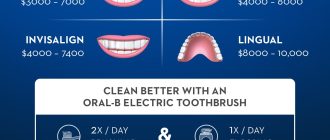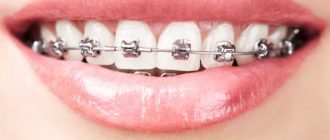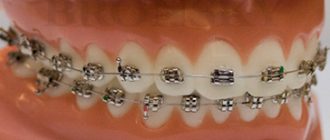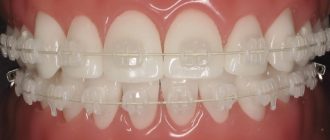The costs of attending a dental school can vary markedly depending on whether you choose a public or private university, an undergraduate or postgraduate program, whether you live on or off campus or with your parents and the type of financial assistance you receive. Studying for DDM (Doctor of Dental Medicine) or DDS (Doctor of Dental Surgery) can be an expensive process, so researching the prices beforehand is wise.
Dentistry takes four years to complete and involves various fees and charges such as tuition fees, equipment fees, insurance, books and supplies and living expenses. Fortunately, there are federal financial programs and loans which provide many students with much needed funding for completing their dental collage studies.
Cost of Dental Work at a Dental School
Dental schools not only assist prospective students in achieving their academic and professional goals, they also help the public in providing low cost dental services. Members of the community can opt to have dental treatment carried out at a college to receive considerable discounts. The cost of having dental treatment such as a full check-up, teeth cleaning, fillings and even tooth extractions is approximately two thirds of the normal cost patients would pay at a private clinic. This provides essential services for those who are less able to afford them, which is especially beneficial for low income families.
These programs offer the average patient significant savings whilst providing students with essential training toward their tuition. For example, the cost of braces at a dental school can average between $2,000 and $5,000, whereas with a private practice an orthodontic patient would expect to pay anywhere between $4,500 and $10,000. Since the work is carried out by students on an unpaid basis, the dental school is able to accept such low rates. Whilst the treatment is undertaken by trainees, all work is supervised by fully qualified professors and dentists.
Cost of a Public Dental School
Prospective students on a tighter budget should choose to undertake their tuition at a public university as opposed to attending a private collage. The tuition fees payable by students at a public university are about half of what they would pay at a private institution. For residents, the figure ranges between $23,000 and $140,000 for the four year course, being approximately $5,750 to $35,000 per year.
As for non-residents, the tuition fees are much more expensive. For students who do not reside in the state, these fees are approximately $11,000 to $54,000 per annum, totalling $44,000 to $215,000 for the four year dental program. For example, the tuition and fees for the four year DMD program at the College of Dentistry, University of Florida is $30,936 for florida residents, compared to $57,416 for non-residents for the year 2010-2011. These annual figures are at in the mid-range of the scale for public schools and include tuition fees for the fall, spring and summer semesters.
You will find a wide disparity of fees in public universities throughout the United States and selecting the one which provides the cheapest tuition costs may require you to relocate or even move states. In trying to save costs on dental tuition, look for a public university with the lowest tuition fees and living expenses (on and off campus). Also consider the associated costs of living in the location.
Cost of Private Dental School
Private universities provide dental courses at a much higher rate than public schools. The average cost of completing a four year dental program at a private dental school ranges between $68,000 and $272,000, being $17,000 to $68,000 per annum. Not all private collages have the same tuition fees, with some being more expensive than others. For example, tuition fees for the University of Southern California, Doctor of Dental Surgery are $69,927 for the year 2010-2011 (for each year 1, 2 and 3 of the program). Year four reduced to $46,618. The total school costs end up being $292,383 for the four year course.
Tuition charges at a private dental school are double what you would expect to pay at a public school. Some of the most expensive private dental colleges include New York University College of Dentistry, University of Pennsylvania School of Dental Medicine, Boston University Goldman School of Dental Medicine and Columbia University College of Dental Medicine. Some private schools participate in the federal financial programs, which can make the costs of attending more affordable for those who are eligible for such funding.
Dental School Living Expenses
In addition to tuition fees and other associated costs, one major outlay associated with attending a dental college is the living expense. The options include living on campus, where you will be required to pay room and board expenses or seeking accommodation off campus. The housing costs will depend on your location. In order to attend a more renowned collage, some students choose to pay higher tuition fees and lower their living expenses by moving to a low cost area.
Room and board charges will vary among the universities and can be between $11,000 and $25,000 per year. For example the room and board allowances for the University of Southern California for 2010-11 is $20,928 for year 1 of the course. When determining whether it’s cheaper to live on or off campus, you should compare the housing costs in your location with the board and room prices charged by your university taking into account any living allowance that you are eligible to receive.
Other Dental School Expenses
On top of the two major cost factors (tuition fees and living expenses) universities charge additional expenses for equipment, instruments and other miscellaneous items. Here are some examples of these extra costs:
USC, Doctor of Dental Surgery, Year 1, 2010-2011
- Instrument Management System Fee$4,191
- Dental Equipment Issue$7,200
- Health Insurance$1,040
- Student Health Center Fee$664
- Disability Insurance$72
- Scrubs Fee$280
- Dental Gown Usage Fee$165
- ASDA/CDA Dues$77
- Topping Student Aid F und$16
- Graduate Orientation Fee$50
- Grad Student Programming Fee$62
- Grad Student Services Fee$25
Tuft’s University DMD Program, Second Year, 2011-2012
- Dental Kit$4,050
- Sterilization Charge$3,300
- Preclinical Supplies$1,130
- Fixed Prostho Lab Kit$600
- Technology Fee$298
- Activity Fee$244
- Health Insurance$3,384
- Health Administrative Fee$210
- Disability Insurance Fee$51
- Clinic Gown Fee$280
Although these associated charges are much lower than tuition and living expenses, they can add an additional $10,000 to $15,000 to the overall cost of a yearly program. Each university will have their own set of fees. Before applying for a course, you should obtain a breakdown of the prices for each year of the tuition program on the dental college section of the university’s website.
In addition to these fees and charges imposed directly by the universities, you will also need to pay for transportation (around $3,000 per year), books and supplies (approximately $2,100 per annum) and other personal or miscellaneous items (averaging $2,400).
Financial Assistance for Dental School Costs
For those who are unable to afford the full costs of joining a dental school, there are financial grants and loans available. These include the federal student aid programs such as Federal Pell Grants (which do not require repayment) and the subsidized and unsubsidized Federal Stafford loans. Federal Plus loans are also available and are unsubsidized loans made to parents of undergraduate students. Not all schools participate in the federal student aid programs and some campuses may also provide their own financial assistance programs or scholarships.
The amounts received under each loan are capped. For example, the Perkins loans which are low interest (5%) provide a maximum annual loan amount of $4,000 to undergraduate students. The amount you will be entitled to under certain loans is calculated as the difference of the cost of attendance of your college (including living expenses) and your expected family contribution (EFC).
In order to calculate the EFC figure, the college takes into account your family’s taxed and untaxed income, assets, any social security benefits, the size of your family and the number of family members who will be attending college in that particular year. In addition to looking at your family’s financial circumstances, your school may also consider extraordinary financial circumstances such as unusual medical or dental expenses or a significant change in income from one year to the next. The formula to calculate the EFC amount is prescribed by law and not determined by each college individually.
After applying for a FAFSA (free application for federal student aid) you will receive a letter from your dental school advising you of the amount you will be awarded and the type of grant or loan you qualify for. Usually the loan or grants are first applied toward your tuition and fees, room and board (if you live on campus) and the remainder is paid to you for your other college expenses.
Non-citizens are not eligible for federal college funding. However, international students can source private educational loans from banks or credit unions. The interest rates and repayment options may not be as attractive as federal funding, however many private institutions offer competitive loans for students who are non U.S. citizens. These include the Citibank citiassist loan, sallie may signature loan and the wells fargo collegiate loan. For more information about international student loans, contact your university.
Should I Go To Dental School?
Studying at a dental school to become a dentist can be a costly exercise. However, it is well worthwhile in the long run since qualified dentists can earn upwards of $100,000 per annum. Even if you take out financial assistance loans, these often come with very low interest rates and favourable repayment options. If you are considering undertaking dental tuition, research your options with dental schools thoroughly and if you are financially curtailed, look into grants, loans and public schools with the cheapest tuition and living expenses.






